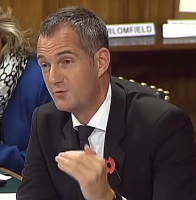Skills Minister Nick Boles has ruled out a blanket ban on new university technical colleges (UTCs) where post-16 education area reviews are taking place.
Shadow Skills Minister Gordon Marsden grilled Mr Boles in a series of written parliamentary questions on the details of the area reviews, including whether any UTCs or post 16 school would be allowed to open.
And Mr Boles answered: “All applications to open a free school, academy, school sixth form or university technical college will be assessed on a case by case basis against the published criteria and taking account of local needs and circumstances.”
The government has said the post-16 area reviews were “designed to achieve a transition towards fewer, larger, more resilient and efficient providers, and more effective collaboration across institution types.”
And James Kewin, deputy chief executive of the Sixth Form Colleges’ Association, condemned the decision against a blanket ban.
He said: “The government’s position is now as clear as it is absurd — it is simultaneously committed to reducing the number of sixth form colleges while increasing the number of less effective and efficient 16-19 providers.
“It is clear manifesto commitments on school expansion and increasing the number of free schools and UTCs will be met even if this results in a worse deal for young people at a higher cost to the public purse.”
Mr Kewin added: “The Government is quite prepared to hit the target but miss the point.
And while the area reviews are busy creating ‘fewer, larger providers’, more smaller providers will be opening at exactly the same time — this does not look like joined up policy making.”
It has also come as a blow to the Association of Colleges, which has called for a freeze on new provision during reviews, with chief executive Martin Doel saying that it would be “unreasonable and illogical for the government to allow more new sixth forms and other post-16 education to be created during the course of reviews”.
And in response to refusal of a blanket ban, Mr Doel said: “We expect the area reviews will take into account the sustainability or otherwise of all post-16 school provision and while the reviews are ongoing, government should refrain from opening any new post-16 provision.”
Mr Marsden’s questions to Mr Boles on the area reviews also queried whether any assessment had been made of the possible savings from the post-16 area-based reviews.
Mr Boles conceded that early evidence indicates there is “potential for the reviews to secure efficiency savings”.
Area reviews have so far been announced for 83 general FE colleges and sixth form colleges in the West Yorkshire, Tees Valley, Sussex Coast, Solent, Birmingham and Solihull, Greater Manchester, and Sheffield city areas.
More reviews are expected to be announced shortly.

 al secretary to the Treasury (pictured above), and Small Business, Industry and Enterprise Minister Anna Soubry were challenged by the House of Commons Business, Innovation and Skills Select Committee.
al secretary to the Treasury (pictured above), and Small Business, Industry and Enterprise Minister Anna Soubry were challenged by the House of Commons Business, Innovation and Skills Select Committee.


 Principal Mary Murphy (pictured left) said: “You have to be prepared for when you are getting these short inspections because they are carried out in such a short space of time and you are informed just 48 hours before they take place.
Principal Mary Murphy (pictured left) said: “You have to be prepared for when you are getting these short inspections because they are carried out in such a short space of time and you are informed just 48 hours before they take place.




